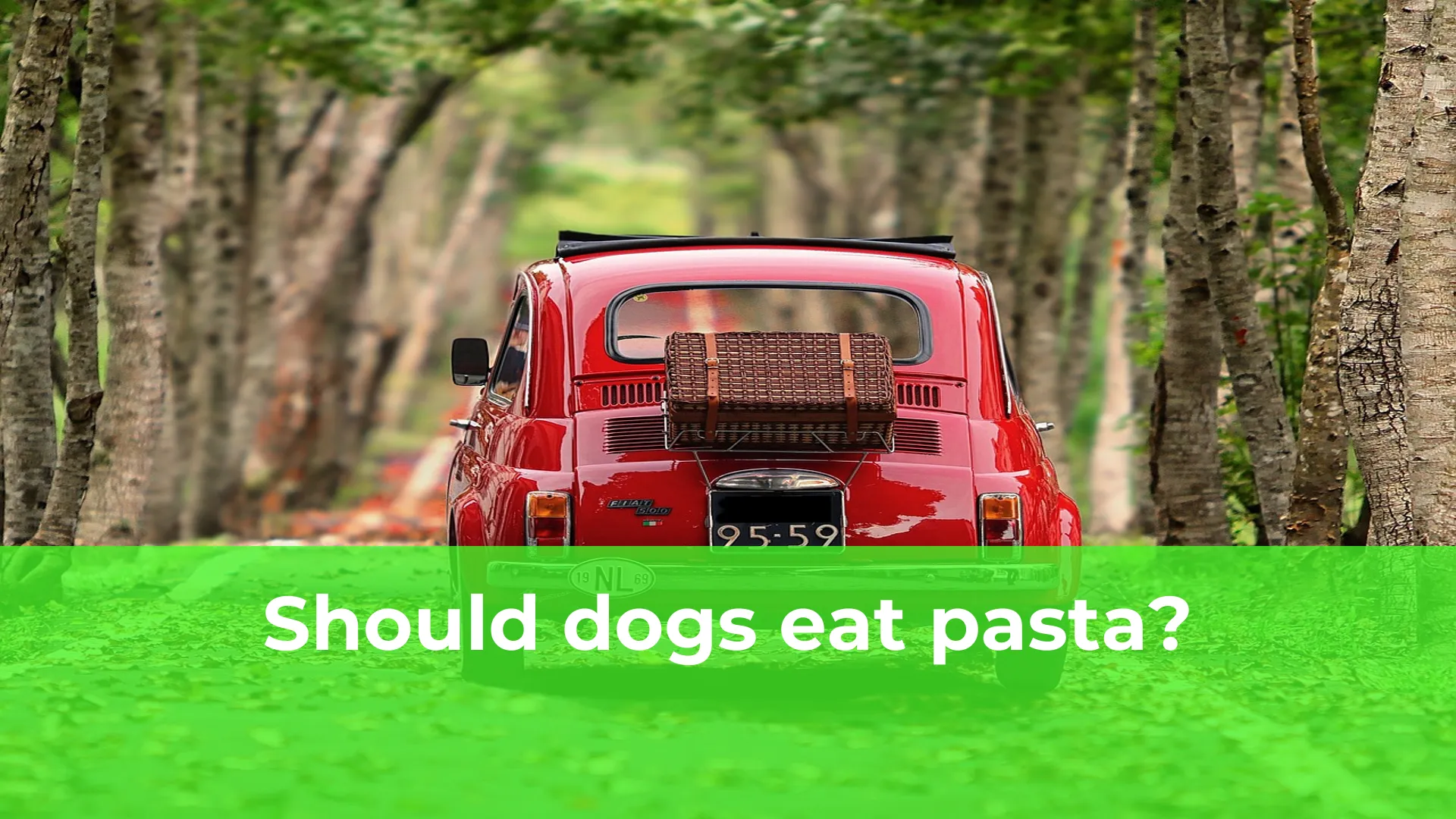Should dogs eat pasta?
Should dogs eat pasta? The debate over whether pasta is suitable for dogs has been a topic of contention among pet owners. While pasta is a staple in many human diets and can be a delicious treat, its nutritional value and suitability for dogs should be examined. Some argue that pasta can be a safe and healthy addition to a dog’s diet when served in moderation and prepared without harmful ingredients. Others, however, express concerns about the potential adverse effects of feeding dogs pasta, such as weight gain, digestive issues, and allergies. Before including pasta in your furry friend’s meals, it is crucial to consult with a veterinarian to ensure it aligns with their dietary needs and health condition.
1. Pasta and dogs: A controversial combination
Pasta and dogs: A controversial combination
When it comes to feeding our furry friends, there are numerous debates surrounding what is safe and healthy. One particularly controversial topic is whether dogs should be given pasta as part of their diet. While some pet owners argue that pasta can be a perfectly fine addition to their dog’s meals, others vehemently oppose this practice, citing potential health risks. It is important for dog owners to carefully consider the facts and consult with their veterinarians before incorporating pasta into their pet’s diet.
2. Debunking the myths: Can dogs safely enjoy pasta?
Debunking the myths: Can dogs safely enjoy pasta?
As dog owners, many of us have been caught in the dilemma of whether or not to share our delicious pasta dishes with our furry companions. While some may argue that pasta is a safe treat for dogs, it is essential to separate fact from fiction. Contrary to popular belief, dogs can indeed enjoy pasta, but it is crucial to understand the guidelines and limitations to ensure their safety and well-being. In this article, we will debunk common myths surrounding dogs and pasta consumption, providing you with accurate information to make informed decisions for your canine friend.
3. The nutritional implications of feeding pasta to your furry friend
Many pet owners wonder about the nutritional implications of feeding pasta to their furry friends. Pasta is a common staple in human diets, and it may be tempting to share this food with our pets. However, it is important to consider the specific dietary needs of our four-legged companions. While pasta itself is not toxic to dogs or cats, it does not offer significant nutritional benefits either. Feeding excessive amounts of pasta to pets can contribute to weight gain and obesity, as it is high in carbohydrates. Additionally, pasta lacks essential nutrients that are important for pets, such as protein, vitamins, and minerals. Therefore, it is advisable to limit pasta consumption for pets and focus on providing them with a balanced diet that meets their individual nutritional needs.
4. Pasta alternatives for dogs: Healthy substitutes you should consider
When it comes to feeding our furry friends, it’s important to ensure they have a balanced diet that meets their nutritional needs. While pasta may be a favorite human food, it’s not always the healthiest option for dogs. However, there are plenty of pasta alternatives that can provide similar textures and flavors while offering a range of health benefits for your four-legged companion.
One popular pasta alternative for dogs is zucchini noodles, also known as “zoodles.” These low-calorie and nutrient-dense noodles are a great source of vitamins, minerals, and fiber. Zucchini is also low in carbohydrates, making it an ideal option for dogs with weight management issues or those on a grain-free diet. You can easily make zoodles at home using a spiralizer or find them pre-packaged at many pet stores. Serve them cooked or raw, and watch your dog enjoy a tasty and nutritious meal.
5. Exploring the potential benefits of incorporating pasta into your dog’s diet
Many pet owners are constantly seeking ways to improve the health and well-being of their furry companions. One area that has gained significant attention in recent years is the incorporation of pasta into a dog’s diet. While traditionally considered a human food, pasta can offer several potential benefits for dogs when introduced in moderation. From providing a good source of carbohydrates to aiding in digestion and offering a variety of nutrients, pasta can be a valuable addition to a dog’s meal plan. However, it’s crucial to understand the proper way to incorporate pasta into a dog’s diet and to consult with a veterinarian to ensure it aligns with their specific needs and health conditions.
6. Veterinarian insights: What experts have to say about dogs and pasta
Dogs and pasta: a combination that many pet owners question. Can dogs safely consume pasta? We spoke with veterinarians to get their insights on this commonly asked question. The consensus among the experts is that while pasta itself is not toxic to dogs, it should be given in moderation and with caution. Veterinarians advise pet owners to consider the type of pasta, the portion size, and any additional ingredients before sharing it with their furry friends. Read on to discover what the experts have to say about dogs and pasta.
7. The dos and don’ts: Guidelines for feeding pasta to your canine companion
Feeding pasta to your furry friend can be a tempting idea, especially when they give you those irresistible puppy eyes. However, it is crucial to be aware of the dos and don’ts when it comes to offering pasta to your canine companion. While some types of pasta can be safe and even beneficial for dogs, others may pose potential risks to their health. In this article, we will provide you with thorough guidelines to ensure that you can safely incorporate pasta into your dog’s diet.
When it comes to feeding pasta to your dog, one of the most important dos is to choose the right type of pasta. Opt for whole wheat or gluten-free varieties, as they are less likely to cause digestive issues. Additionally, ensure that the pasta is cooked thoroughly and served in small, manageable portions. It is crucial to avoid seasoning the pasta with ingredients like garlic, onions, or excessive amounts of salt, which can be toxic to dogs. By following these dos and being mindful of portion sizes and preparation, you can safely introduce pasta as an occasional treat for your furry companion.




